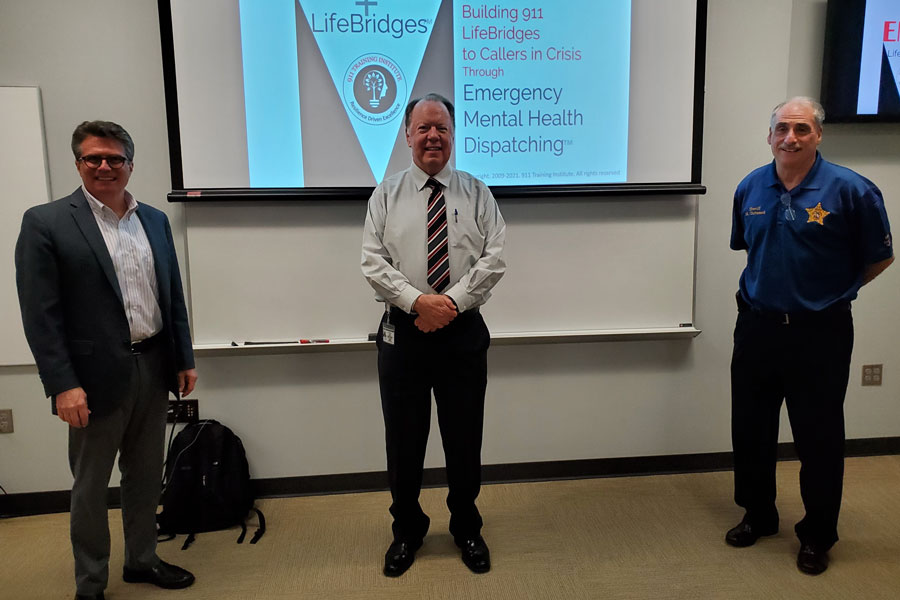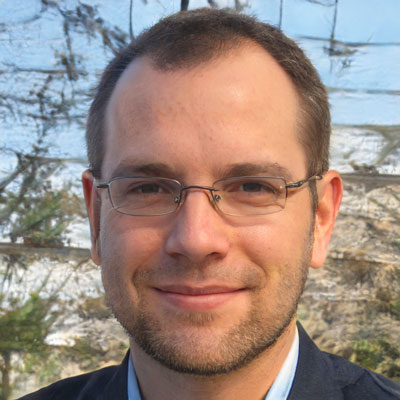Volusia 911 Dispatchers Get Mental Health Training; Specialized Certification Aims To Keep Suicidal Callers, First Responders Safe

DELAND, FL – How would you respond to an agitated caller who tells you he has a sawed-off shotgun pointed at his face and is going to kill himself unless YOU can give him a reason to live?
That’s the kind of scenario that 911 dispatchers at the Volusia Sheriff’s Office Communications Center face regularly. It’s their job to find out what’s wrong and keep the caller alive as well as the police, firefighters and paramedics who are sent to the scene to help.
Imagine the skills required to successfully handle emergency calls like that one: listening compassionately while remaining calm and focused to gather important information needed to disperse help quickly.

Recently, 17 Sheriff’s Office dispatchers learned about the country’s best strategies for handling 911 callers who are at risk of suicide or other mental illness crisis. The training was a priority for Sheriff Mike Chitwood, who sat in on portions of the class and has additional sessions scheduled for the future. (https://austinpartybus.com/)
“This is essential training for every dispatcher, and I know they’ll put it to use to save lives in Volusia County,” Sheriff Chitwood said. “We often talk about how our deputies are on the front lines of our country’s mental health crisis – but we have to recognize our dispatchers are, too.”
The state-of-the-art course, called Emergency Mental Health Dispatching (EMHD), is geared toward helping 911 telecommunicators boost their confidence to help better diffuse crisis situations and keep first responders safer in the field, Communications Director Jim Soukup said. “When you train people to that level, it just helps everybody.”
Within the next few months, all dispatchers will receive this intensive training – about 135 people. In addition, a yearly refresher course will be offered.
Jim Marshall, co-founder and director of the 911 Training Institute in Michigan, taught the three-day course at the Communications Center on Tiger Bay Road in Daytona Beach.
Marshall is a longtime mental health professional who combines the science of psychology with the role of the 911 dispatcher in his training. The course helps dispatchers understand more about mental illness and factors that drive suicide. And, it includes teaching dispatchers strategies to excel at the job, decrease anxiety and promote good health.
Marshall reminded the class of the importance of being self-aware, learning to manage emotions and acknowledge feelings while doing their job, not just internalizing or dismissing them.
“It’s about resetting yourself and reconnecting (with the caller) so you can be present and be able to protect your first responders,” he said.
When asked how they benefitted from the class, students said they became more aware of underlying issues callers might be experiencing – physically or mentally. A caller might sound intoxicated on the phone, but actually might be experiencing a stroke or diabetic issue, for example.
“These 911 dispatchers are already good at” active listening and the skills needed to do their jobs, Marshall said.
With more scientists studying self-harm and suicide to determine how to effectively intervene, he said, “this takes on more importance. We just need to reinforce this.”
The next training course is scheduled Feb. 15.



Comments are closed.